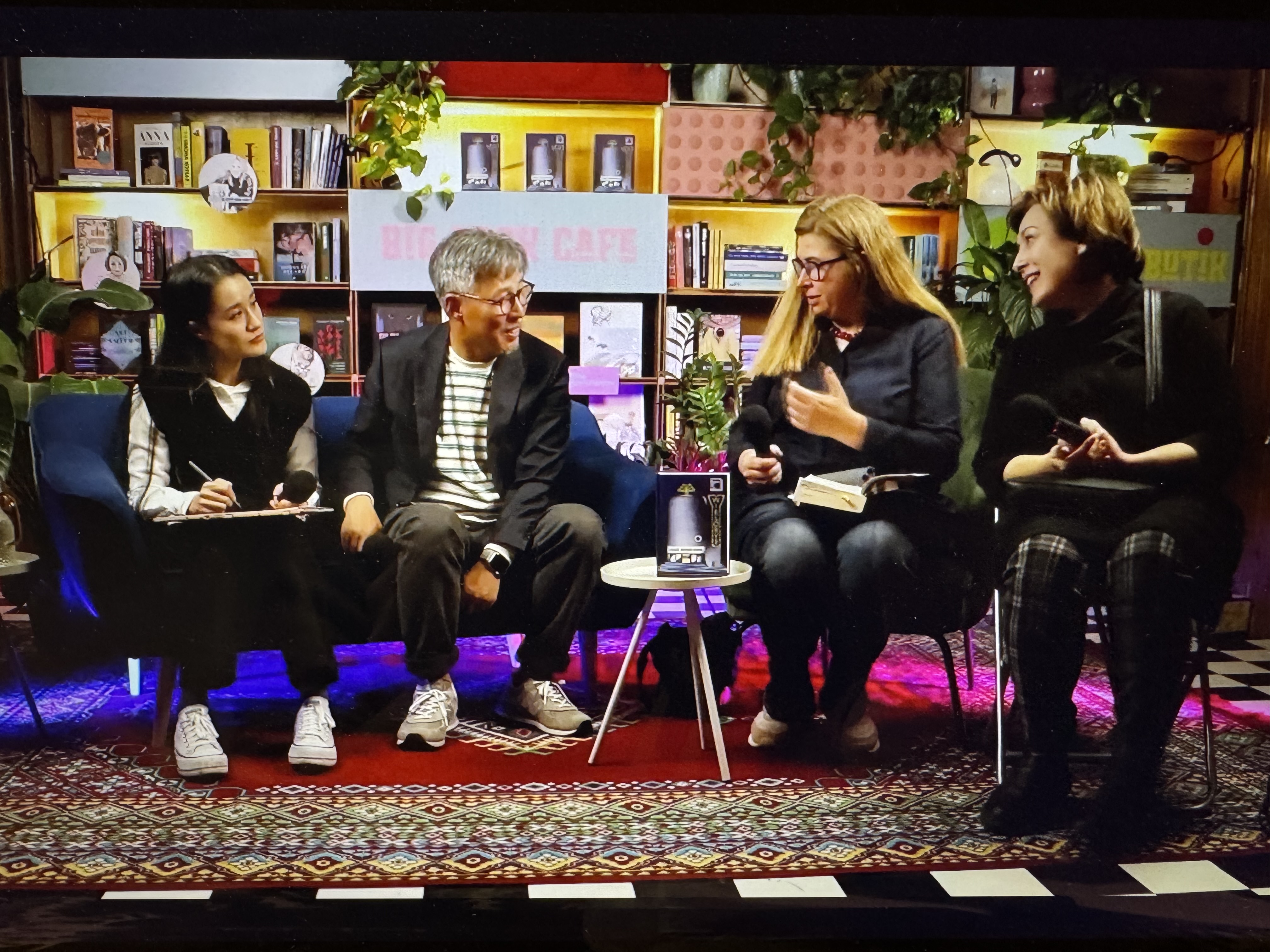Sometimes Mondays can be pleasant. Last Monday, on October 28th, I had the chance to participate in a meeting with Korean author Cheon Myeong-kwan. It was held in Warsaw, but thanks to online streaming, I could join remotely. The event was organized by Big Book Cafe MDM, Wydawnictwo Znak Literanova, and the Korean Culture Center in Warsaw.
Cheon Myeong-kwan came to Poland to discuss his novel Whale (kor. 고래), which was shortlisted for the International Booker Prize. So far, it’s the only one of his books translated into Polish. During his stay he participated in three different events. The first, on October 24th, was a meeting with students from Korean Language Studies at the University of Warsaw, where they discussed the book, Korean literature, and students had the chance to get his autograph. The next event was held in Cracow, where Cheon Myeong-kwan appeared as a guest at the Conrad Festival, a festival dedicated to international literature. There, he spoke about social issues, including the role of women in society and the global perception of Korean literature.
The final event, which I attended, took place in Warsaw. We first heard about the author’s career journey. He shared that he began in the film industry as a screenwriter, hoping to release his own film. Unfortunately, due to circumstances, he had to close his company, which led his younger brother to suggest he try writing books instead - at the time, he was over 40 years old. Whale was written and published in 2004. It’s a haunting tale rooted in Korean folklore, following three women - a mother obsessed with whales, her daughter who speaks to elephants, and a one-eyed woman who summons bees - each shaping her destiny in a world that denies them a voice. To reflect the generational stories, the author used distinct styles of the Korean language to capture and mark different eras. For instance, in parts about the mother, set before industrialization, he used the language used in pansori - traditional Korean music, which has a very unique style and rhythm. The Korean-Polish translator of Whale - Mrs Anna Diniejko - was also present and shared that this aspect of the novel was challenging to convey in Polish. However, she aimed to maintain the same or very similar rhythm of the sentences and used the older Polish words to evoke the era. Audience confirmed that it's visible in the polish translation.

The audience had many questions for Cheon Myeong-kwan. He was asked if a new novel is on the way (yes, probably in April next year) and whether another of his books would be translated into Polish (maybe, depending on the success of Whale). He also shared that during his stay in Poland, he tried traditional Polish dishes, including pierogi—which are similar to Korean mandu—and steak tartare, which also exists in Korean cuisine. He was surprised by the many culinary similarities between Poland and South Korea. To close, he shared his admiration for Polish filmmakers such as Krzysztof Kieslowski and Roman Polanski, mentioning Knife in the Water as his favorite Polanski film, and that one of the films that deeply influenced him was Man of Iron, Andrzej Wajda's film about Lech Walesa.
Even though I was not physically present at the meeting, I had a lot of fun listening to the live stream. I’m very happy that the organizers provided us with such an opportunity. I'm looking forward to the next book by Cheon Myeong-kwan translated into Polish and keeping my fingers crossed for his new book comming next year.
How about this article?
- Like1
- Support2
- Amazing2
- Sad0
- Curious0
- Insightful1


